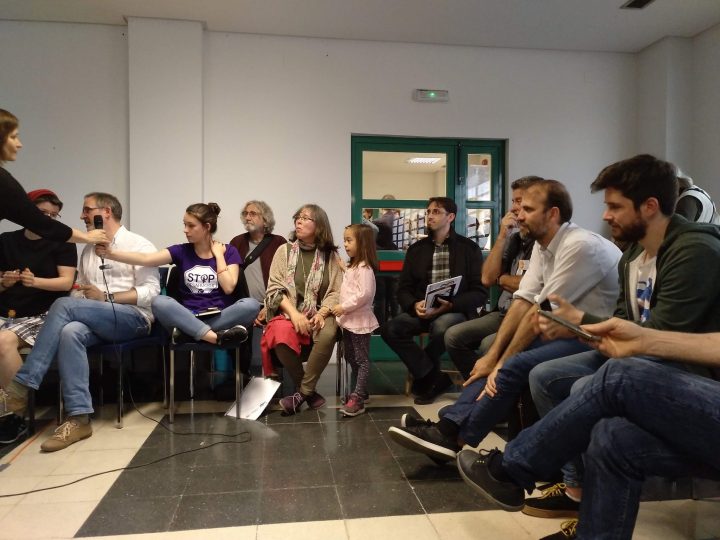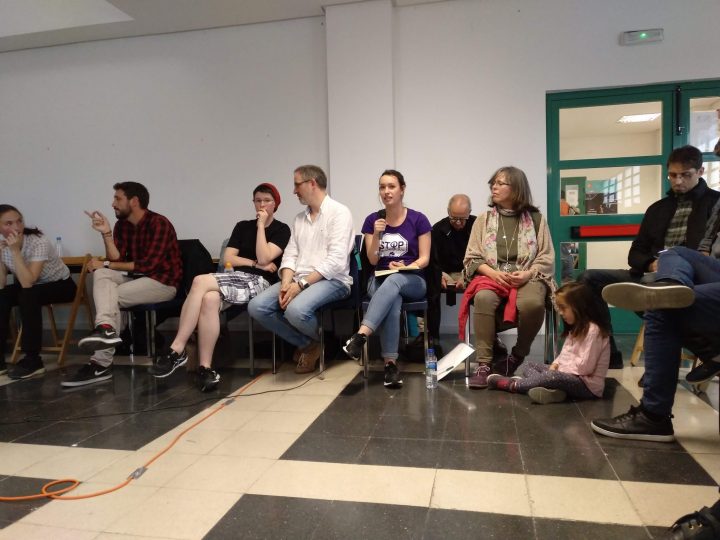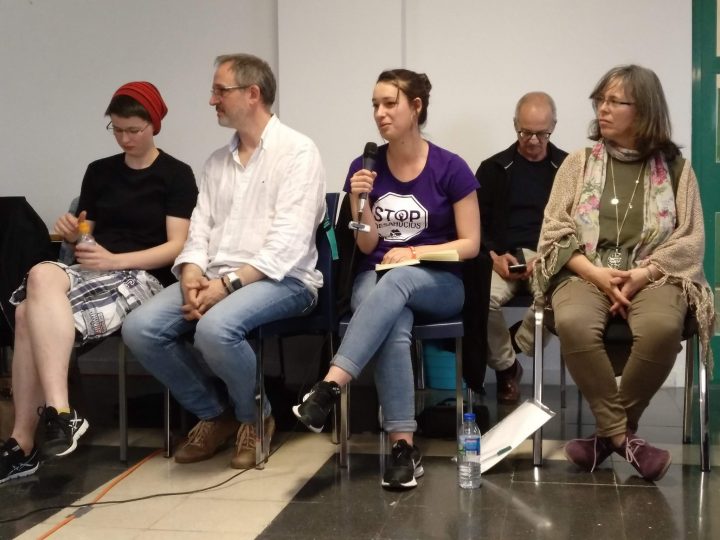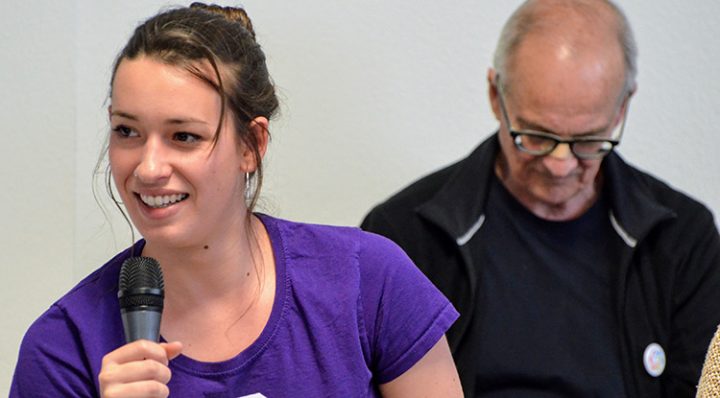Sara García Toledano is a law student and activist at the Plataforma de Afectados por la Hipoteca PAH Madrid (Platform for Victims of Mortgages PAM Madrid). She has participated in the European Humanist Forum, recently held in Madrid, as a speaker at the “Independent Journalism and Social Activism” round table.
What has been the experience of the Plataforma de Afectados por la Hipoteca in the construction of a new narrative about evictions due to problems with mortgage payments?
First of all, I would like to send greetings to my colleagues who are currently mobilising in the centre of Madrid and in other cities.
Everyone in this room assumes that media power is a monopoly, but sometimes we forget that this monopoly is also itself financed by capital actors who in turn form other monopolies, such as banks and vulture funds. With all these great powers against it, the Platform of People Affected by Mortgages, managed to “slip” into the media and is an example of action for other movements.
The fact that information is monopolised leads us to have a unique narrative that is incorporated as the only way to perceive things. In fact, that is the greatest victory of capital, to make us believe that this is the only possible system. As Fredric Jameson said, “It is easier to imagine the end of the world than the end of capitalism”. The problem with generating a unique narrative is that we cannot imagine other models.
However, there are always windows that open, through which an alternative narrative can be found that is incorporated into common sense and a new reality is structured.
In the case of PAM, what happened at the beginning of the housing crisis was that problems with evictions were considered an individual family problem. PAM is a platform that was organised to fight for the right to housing, to respond to this problem of families who could not pay their mortgages and were evicted from their homes. We are known as those who stand at the doors of houses and stop an eviction.
PAM functioned as a hashtag for social networks. With its constant mobilisations in the street, stopping evictions and denouncing the abuses of the banks, it managed to turn the individual problem of eviction, that families suffered in silence, (they left home with their suitcases and children in silence), into a collective problem that many people suffered. When people saw this situation every day in the big media, they began to generate a new story that brought the problem closer to the citizens. Tomorrow I could be the one who’s evicted! It became clear that this was not an individual problem of the families affected, but that this situation was a response to a capitalist system and a concrete economic model: the accumulation of wealth through real estate speculation.
Some concrete actions that helped us to generate the new narrative were the constant presence in the streets, that helped to put faces to the victims and thanks to this we were able to point out the culprits, who were not the ones who were evicted as before. We were able to point the finger at the culprits thanks to the ‘trial and punishment’ campaign, which were none other than those primarily responsible for the government’s financial institutions and economic policies. It became evident that these culprits were responding to a specific economic model and were on the boards of directors of large banks or in vulture funds.
Once those responsible had been identified, solutions were needed and the “PAHm Welfare Project” was born, consisting of occupying the empty flats of the banks that were evicting the families. These actions have generated a new narrative about the idea of occupation. Before it was thought that the squatters settled down because they had a lot of nerve, but now it could be seen that the squatters settled down because they were evicted people and had the need to get into a house with the children. We relayed those occupations so that people could see how hard it was to occupy out of necessity.
What has been the role of the independent media in your demands?
The independent media were there at all times and without them we would not have had such an much impact. Although most of our resonance came through the presence on the streets, the independent media were key to getting where we were not. In this sense, PAM has always had a strong media presence, especially in the independent media.
In relation to the motto of this forum: “what unites us” How can we improve our joint work with the media and social movements?
I would like to make some proposals on the things that I think are missing. Independent media do not have specific sections for social movements to write articles, nor do television media have exclusive spaces for social movements. This is an important proposal, because who better to tell the story of a problem than those who suffer it? In this way, I launch the proposal that the neighborhood newspapers develop sections for the social movements. It is not a question of other people giving us a voice in social movements, but of us being able to tell in the first person what is happening.









